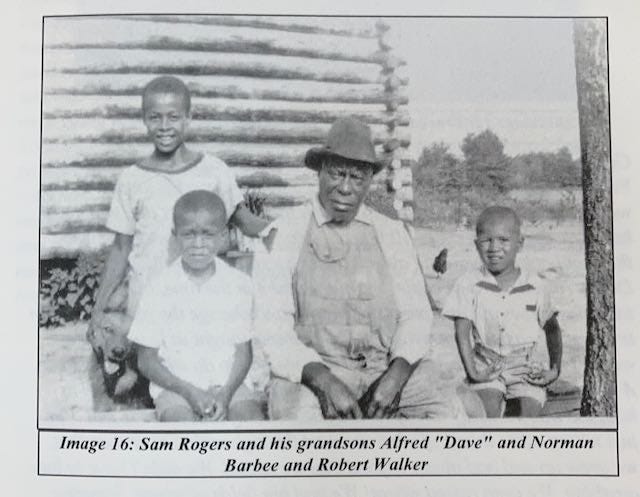A word on the Greene Tract
From Minister Robert Campbell
ONE COULD WRITE an entire book about the historic Rogers Road neighborhood’s half-century (and counting) ordeal over the landfill and the Greene Tract. In fact, a book was written about it, called Rogers Road. And that was back in 2008, well before the Chapel Hill Town Council backed away from the development plan for the Greene Tract in 2019 that Chapel Hill, Carrboro, and Orange County had taken two decades to arrive at with impacted community members.
The issue is too vast, and too complex, to cover adequately in this space. But it starts with the opening of a landfill with no liner that was only supposed to be there — adjacent to a historically Black neighborhood, naturally — for a few years, but instead expanded and remained for decades. The story includes, as just a sampling: contaminated water, disease, residents with no water and sewer lines until a couple of years ago (that still require homeowners to pay for hookups), stench, buzzards and rodents, raw sewage, an endless parade of speeding garbage trucks with no sidewalks for children until recently, etc.
I encourage anyone — especially people who are or who might soon be in a decision-making capacity — wanting to know more about the history to read Rogers Road by Emily Eidenier Pearce. Buy it here for $16, borrow here, or email me at stonewalls1793@gmail.com and I’ll send you a PDF version. The book is a straightforward, fact-based account of the history through 2008, presented as a compilation of research resulting from a UNC School of Global Public Health student’s work on the topic.
Importantly, the book goes back in time even beyond the early 1970s when the landfill arrived with a handshake and many promises to be broken. The full story starts with the ancestors of current families who trace back to local enslavement and settling the area after emancipation. The roots of injustice run deep.
The back cover of the book describes its contents:
Rogers Road traces the story of a historic African-American community in Orange County, North Carolina, from the 1700s until today. Using oral histories, family photographs, and an extensive review of local government records and secondary sources, the book documents the community’s development from its agricultural past to its current involvement in environmental justice organizing. The site of two municipal landfills and a possible future transfer station, the neighborhood has fought for years to retain and communicate its history and heritage. This book communicates the history of Rogers Road as seen through the eyes of its residents and shows how solid waste management decisions can impact the life of a community.
The book details a clear example of how an onerous partnership between three governments — and pressure placed on them by influential residents ever eager to exert their dominance — has created a seemingly insurmountable roadblock to justice. The circumstances also form a shield against accountability, especially since the people of the historic Rogers Road neighborhood have no say in who represents them on the town councils or as mayors. They can’t vote in Chapel Hill’s or Carrboro’s municipal elections.
Don’t have time for a book? Orange County has a helpful site of information on the Greene Tract, including an up-to-date historical timeline, a joint statement from local leaders, a video explaining the environmental assessment, frequently asked questions (including why the area that became planned for development grew, but so did the area marked for preservation), and a document detailing the Rogers Road community-based planning.
This issue didn’t start this campaign season nor in 2019. Even The New Yorker wrote about the environmental racism aimed at Rogers Road back in 2016. Ben Rappaport of The Daily Tar Heel did a nice job recently as well on the Greene Tract and Rogers Road.
Since the folks who’ve been dealing with it all for generations now can’t vote for the town councils, I asked Minister Robert Campbell, president of the Rogers-Eubanks Neighborhood Association (RENA), if he’d like the last word before the polls close in a week. Here is what he sent to Stone Walls:
The Greene Tract and Environmental Injustice walk hand in hand.

The fight is never going to be over, and it is time for people to understand this term: injustice. When people can use the environment as a weapon for hidden injustice and racism, to use a piece of land to say this is the last forest or that the trees on the Greene Tract are critical to controlling greenhouse gas, I say to the people of Chapel Hill, Carrboro, and Orange County, take time to know your communities in the city and outside the city limit. Vote for this community to help us to develop alongside you. I cannot vote for the town council yet, so please vote with understanding. Where were these voices when they cut down the trees on Eubanks Road, Homestead Road, for development, when they cut down the trees to create the Weaver Dairy Road Ext. and the development? There were no loud voices because the homes were high-dollar homes with LIMITED workforce housing. When it comes to the Greene Tract, the term “affordable housing” creates an undesirable outcome to many. Let politicians be honest and be accountable to the things they say. There were things said in 1972 about the landfill that have become a burden to the Rogers Road–Eubanks Road Community. We see today where that big lie has changed the way of life for so many. Therefore, as politicians, let truth be told to the citizens of our communities. To be true to one self is to be true to all, this is all we have to stand on these days. The Greene Tract can and should be developed to create a workforce community with community amenities as well as economic development. Please do not let the Greene Tract and the Legion Road site become the new code for development that does not support workforce housing. Injustice and Racism must stop if we are looking for true equity in our society and towns. Take time to know injustice and racism, and how we word what we say and the actions we take. See others, know others, diversity is what we ARE.
Robert Campbell
10/22/2021
ONE GOOD THING:
Election Day is next Tuesday, November 2. Early voting and same-day registration continue through Saturday. Chapelboro is keeping a helpful tally of endorsements for local candidates, and local journalist Melody Joy Kramer has compiled those endorsements in spreadsheet form.
My family voted Sunday.






